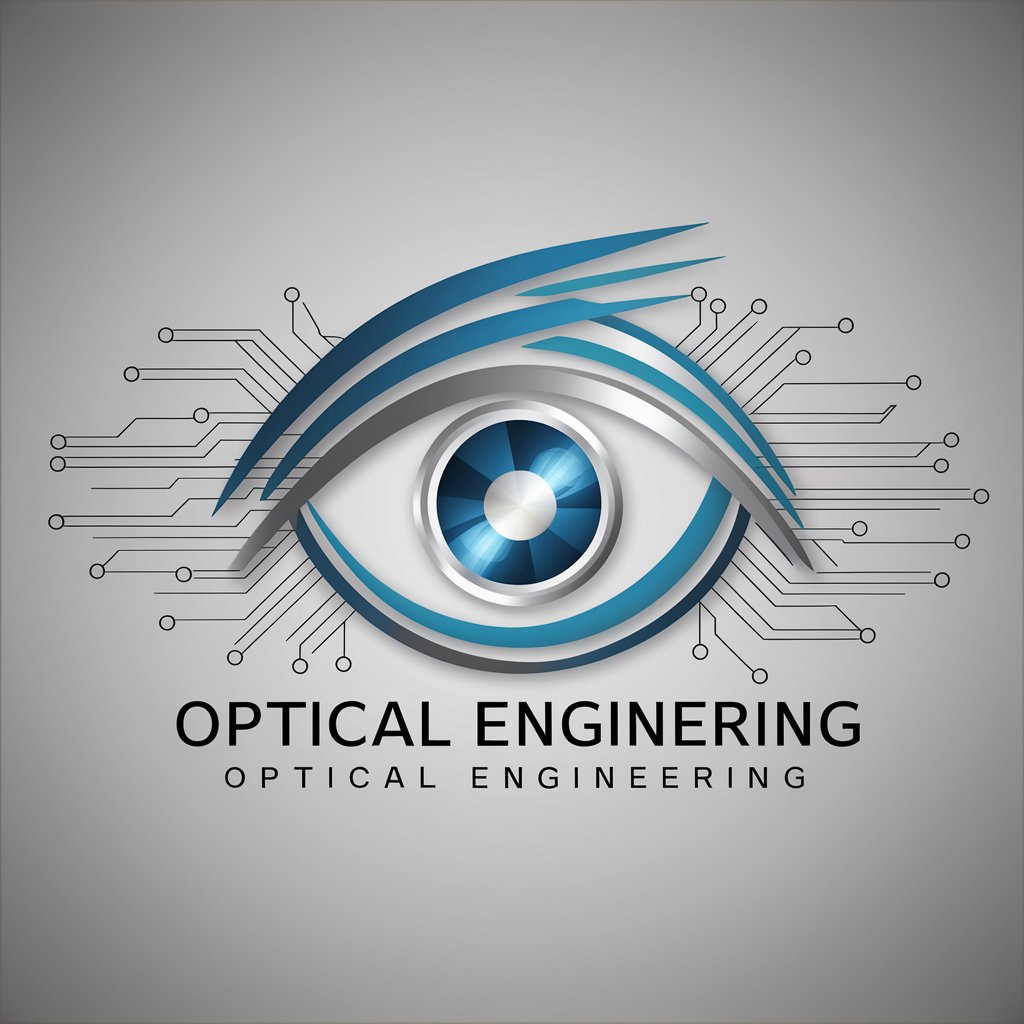Optical Engineering - Optical Engineering Insights

Herzlich willkommen bei Optical Engineering!
Shaping Light for Innovation
Design a cutting-edge optical system that...
Imagine an advanced laser technology that...
Create a detailed schematic for a photonic device that...
Envision the future of optical communication with...
Get Embed Code
Introduction to Optical Engineering
Optical Engineering is a field focused on the practical applications of optics, electronics, technical informatics, mechatronics, and project and product management. It aims to equip students with the ability to generate, direct, and capture light in its various forms and to use this knowledge in innovative ways. The bachelor's program emphasizes a strong theoretical-practical link through integrated practical elements in coursework and a practical study semester that can be conducted in industrial or scientific institutions both domestically and internationally. Powered by ChatGPT-4o。

Main Functions of Optical Engineering
Design and simulation of optical systems
Example
Designing optical components and systems for directing and shaping light
Scenario
Developing lenses for cameras or glasses, creating lighting systems for vehicles, or constructing optical sensors for various applications.
Creation and detection of optical radiation
Example
Developing circuits for the control, modulation, and processing of light signals
Scenario
Designing LED lighting systems, laser technology for medical devices, or fiber-optic communication networks.
Applied research and development in diverse fields
Example
Innovative solutions in med-tech, sensor technology, and the automotive industry
Scenario
Working on cutting-edge optical solutions for improved medical diagnostics, advanced sensor systems for autonomous vehicles, or innovative lighting solutions.
Ideal Users of Optical Engineering Services
Industries with Optical and Optoelectronic Product Needs
Companies in med-tech, automotive, sensor technology, and consumer electronics that require innovative optical solutions for product development and enhancement.
Research and Development Professionals
Scientists and engineers focusing on applied research in optoelectronics, photonics, and related fields, seeking to push the boundaries of what's possible with light.
Project and Product Managers in Technology Sectors
Individuals responsible for overseeing the development and management of technology products, especially those incorporating optical technologies.

How to Utilize Optical Engineering
Initiate Trial
Start by visiting yeschat.ai to explore Optical Engineering capabilities with a free trial, requiring no login or subscription to ChatGPT Plus.
Define Objective
Identify and clearly define your specific need or project requirement to tailor the Optical Engineering tool effectively.
Select Features
Choose from the various Optical Engineering features that align with your project goals, such as simulation, design, analysis, or optimization.
Engage with Community
Leverage community forums and resources for insights, tips, and best practices to enhance your application of Optical Engineering tools.
Iterate and Optimize
Use feedback and results to refine your approach iteratively for optimal outcomes in your Optical Engineering projects.
Try other advanced and practical GPTs
GDPR Guide
AI-Powered GDPR Clarity

The GPT University
Empowering academic success with AI.

MultiverseDebater
Debate across universes, powered by AI

d_llama
Illuminate your path with AI-powered insights.

SciKid Educator
Empowering Education with AI

Summary Plex
Your AI-powered literary guide.

CyberRisk Guardian
AI-Powered Cybersecurity Insights

Molecule Conformers
Empower your research with AI-driven molecular insights.

Namaste India!
Empowering Your Indian Adventure with AI

Grant Assist
Empowering Artists with AI-driven Grant Support

AI-Pressemitteilung erstellen
Elevate Your Announcements with AI Power

Game Genie
Power-up your play with AI.

Optical Engineering Q&A
What is Optical Engineering?
Optical Engineering focuses on applying and developing technologies that utilize the properties of light, including its generation, manipulation, and detection.
How is Optical Engineering applied in industry?
It's widely applied in fields like telecommunications, medical devices, manufacturing, and photonics, offering solutions for imaging, sensing, and laser systems.
What are the prerequisites for studying Optical Engineering?
A strong foundation in mathematics, physics, and a basic understanding of electronic circuits is essential for delving into Optical Engineering.
Can Optical Engineering be self-taught?
While challenging, it's possible through dedicated study of online courses, textbooks, and leveraging simulation tools, but formal education is recommended.
What future technologies depend on Optical Engineering?
Emerging technologies like quantum computing, advanced optical communications, and biomedical imaging rely heavily on innovations in Optical Engineering.
